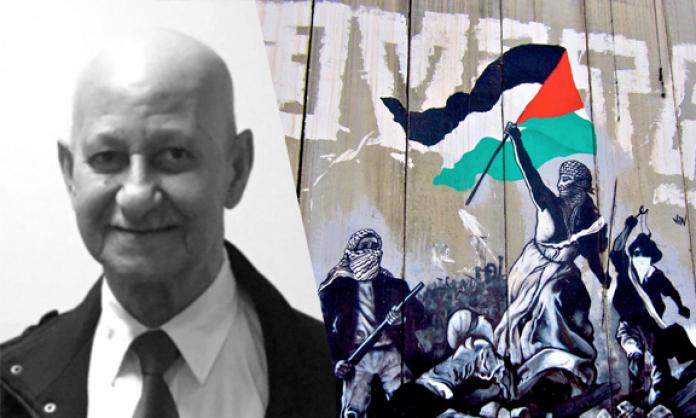Abdul Mun’im Ramahi (also known as Abu Maxim), has passed away after battling cancer for the past five years. A long-time Palestine activist and leftist since his early youth, he will be sorely missed among the Palestinian community in Melbourne.
I spoke with his eldest daughter, Olga, about his life. Abu Maxim was born in 1940 in a village called al-Muzeir’a, near Jaffa, which is close to present day Tel Aviv. She explained that he might have been a bit older and that his birth date is just an estimate – all of his family’s basic documents were lost when their home was destroyed during the Zionists’ attacks on his village and the neighbouring towns during the Nakba and the establishment of Israel in 1948.
When the Zionist militias attacked their village, Ramahi’s family fled to other villages. Seven months later, they ended up in the village of Deir Ghassaneh near Ramallah. All the Palestinians who stayed behind to defend their homes were killed; they were poorly equipped compared to the occupying gangs. Ramahi’s father had a friend in Deir Ghassaneh who offered them a 7 by 7 metre room to stay in. All 27 family members lived there for the following five years. They considered themselves luckier than most Palestinian refugees, who lived under the trees, and then in tents offered to them by the UN, in either the West Bank or neighbouring Arab countries.
“Afterwards, my dad completed school in Ramallah. Then he moved to Jordan, where he joined the Communist Party – working underground”, says Olga. “He went on to study chemical engineering in the former Soviet Union, lasting six years there on a scholarship. Upon his return to the Arab world he applied to work in the petrochemical industry in different countries such as Saudi Arabia, Kuwait, Iraq – but he was rejected in all of them due to his political affiliation and having a degree from the Soviet Union.”
When Israel occupied the West Bank and Gaza in the wake of the 1967 war, the Naksa, Ramahi was not in the West Bank, so he was not allowed to stay there except for visits.
“My father migrated to Australia as a skilled migrant, then went back to the West Bank and married my mother”, says Olga. “She is from the same al-Muzeir’a village – but her family lived in Jalazone refugee camp near Ramallah. My parents still have relatives in the West Bank and he kept visiting them numerous times. Currently, only two brothers and two sisters of my father survive out of 15 siblings, and he kept looking after them. He took us there with him in the West Bank visits to ensure that we are proud of our Palestinian identity.
“Here in Australia, my father continued his political activism. For example, he was a member of ‘Arab Workers Trade Union’ and the ‘Palestinian Society’. Later on he joined the Socialist Alliance and kept being involved in the Palestine campaigns.
“My father’s strength in fighting his illness was very impressive. He was diagnosed with stage four bowel cancer five years ago. The doctors gave him only two years to live but he endured 65 rounds of chemotherapy because he was a tenacious fighter who always had hope.”
Olga shared with me a piece of an Arabic poem from the 1950s that her father was especially fond of. She said her father wrote it down and kept reciting it when the Arab revolutions in Tunisia, Egypt and Libya erupted, saying that this poem’s words are finally realised after 60 years:
Oh workers of the Middle East – this is the time to fight off the occupiers
Go for the hard battles – burn in it whilst smiling
Raise the flag of the people – red hot
Raise it and follow it – high up till victory
Struggle, struggle – oh you poor people
Men, women – and revolutionary youth
For how long you dwell in misery – whilst lazy people indulge
I agree with Olga. Abu Maxim represents to me everything that is purely Palestinian, with an amazing revolutionary hope. He was the first Arab I called when news broke out that Ben Ali of Tunisia had left the country as a result of his people’s uprising. He was the first leftist Palestinian with whom I could share my short-lived euphoria about the Arab Spring.
Only sweet memories pass your mind when you remember someone such as Abu Maxim, who embodied all our turbulent history of occupation and resistance.
As Oscar Wilde once said: “Memory is the diary that we all carry about with us”.
His legacy lives on in his children and grandchildren.
Farewell Abu Maxim.










